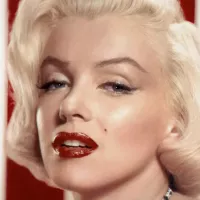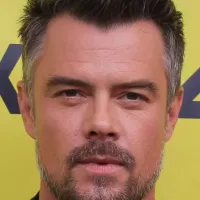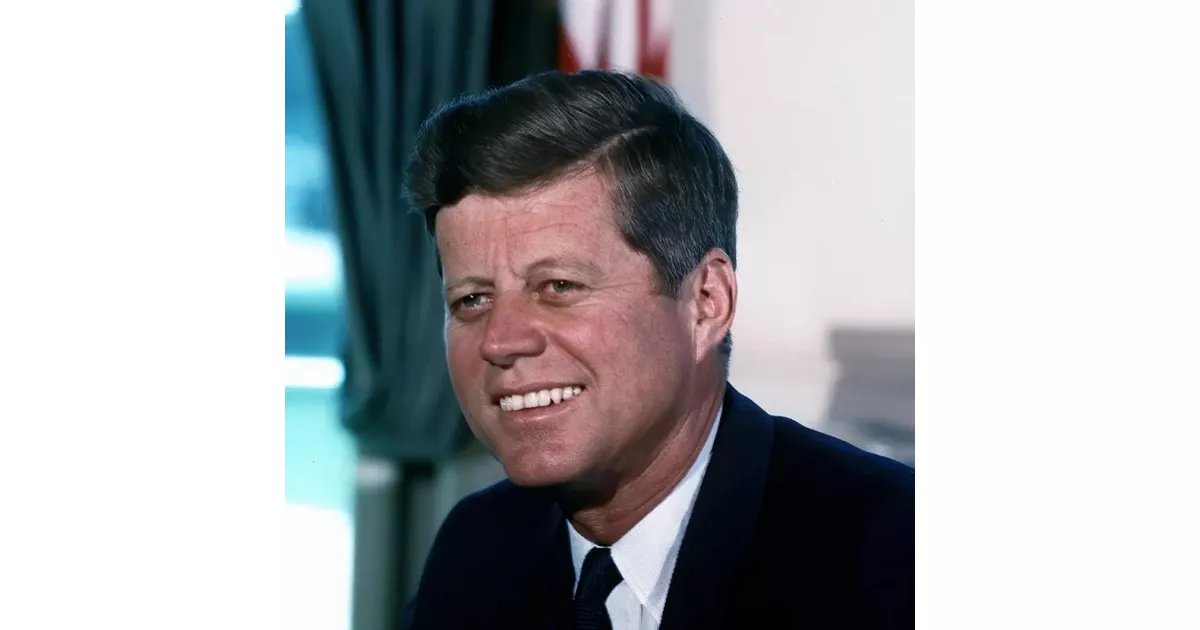Life is full of challenges, and John F. Kennedy faced many. Discover key struggles and how they were overcome.
John F. Kennedy (JFK) was the 35th U.S. President, serving from 1961 until his assassination in 1963. The youngest person elected president, he led the nation during the Cold War, focusing his foreign policy on relations with the Soviet Union and Cuba. A Democrat, Kennedy previously represented Massachusetts in both the House and Senate.
1920: Scarlet Fever Diagnosis
In 1920, three months prior to his third birthday, Kennedy contracted scarlet fever and was admitted to Boston City Hospital.
June 1934: Hospitalization at Mayo Clinic
In June 1934, Kennedy was admitted to the Mayo Clinic in Minnesota; the ultimate diagnosis was colitis.
October 1935: Return to US due to ill health
In October 1935, ill health forced Kennedy's return to the United States, when he enrolled late at Princeton University, but had to withdraw after two months due to gastrointestinal illness.
1940: Attempt to enter the Army's Officer Candidate School
In 1940, Kennedy attempted to enter the Army's Officer Candidate School, but was medically disqualified due to chronic back problems.
December 1943: Departure from the Pacific front
In December 1943, due to his deteriorating health, Kennedy left the Pacific front.
August 12, 1944: Death of Joe Kennedy Jr.
On August 12, 1944, Kennedy's older brother, Joe Jr., a Navy pilot, was killed during an air mission and his body was never recovered. Kennedy later assembled a privately published book of remembrances of his brother, titled "As We Remember Joe."
December 1944: Release from Chelsea Naval Hospital
From May to December 1944, Kennedy received treatment at the Chelsea Naval Hospital in Massachusetts for his back injury and was released from active duty in December 1944.
January 1945: Recovery at Castle Hot Springs
Beginning in January 1945, Kennedy spent three months recovering from his back injury at Castle Hot Springs, a resort and temporary military hospital in Arizona.
September 1947: Addison's Disease Diagnosis
In September 1947, Kennedy was diagnosed with Addison's disease by Sir Daniel Davis at The London Clinic.
1960: Start of Decolonization
Between 1960 and 1963, the decolonization process continued, with twenty-four countries gaining independence. Kennedy aimed to engage with the "Third World" leaders, expanding economic aid and appointing knowledgeable ambassadors.
1960: 1960 Election
Kennedy's small margin of victory in the 1960 election, his lack of deep connections to influential members of Congress, and his administration's focus on foreign policy hindered the passage of New Frontier policies.
1960: Stock Market Declines Since Kennedy's Election
The stock market steadily declined since Kennedy's election in 1960.
January 1961: Khrushchev's Support for Wars of National Liberation
In January 1961, Soviet Premier Nikita Khrushchev declared support for wars of national liberation, which Kennedy viewed as a direct threat to the "free world."
March 1961: Policy shift on Laos
In March 1961, Kennedy changed U.S. policy from supporting a "free" Laos to a "neutral" Laos, and approved CIA activities to combat Communist insurgents through bombing raids and recruitment of the Hmong people.
April 4, 1961: Approval of Bay of Pigs Invasion Plan
On April 4, 1961, Kennedy approved the final plan for the Bay of Pigs invasion, a CIA-backed operation to overthrow Fidel Castro's regime in Cuba, despite the risk of escalating tensions with the Soviet Union.
April 15, 1961: Bombing of Cuban Airfields
On April 15, 1961, eight CIA-supplied B-26 bombers left Nicaragua to bomb Cuban airfields as part of the Bay of Pigs invasion plan, but the mission failed to significantly damage Castro's air force.
April 1961: First Human in Space
In April 1961, Soviet cosmonaut Yuri Gagarin became the first person to fly in space, reinforcing American fears about being left behind by the Soviet Union.
May 1961: Alliance for Progress Initial Grant
In May 1961, Congress approved an initial grant of $500 million for the Alliance for Progress, which aimed to contain communism in Latin America by providing aid and promoting human rights standards.
May 1961: Kennedy Responds to Freedom Riders' Violence
In May 1961, following mob violence against the integrated Freedom Riders, Kennedy assigned federal marshals to protect them. The Congress of Racial Equality, led by James Farmer, organized Freedom Rides.
June 4, 1961: Meeting with Khrushchev in Vienna
On June 4, 1961, Kennedy met with Khrushchev in Vienna. Khrushchev considered Kennedy weak, but Kennedy successfully conveyed that any treaty interfering with U.S. access rights in West Berlin would be considered an act of war.
June 1961: Vienna Summit Meeting
In June 1961, during their Vienna summit meeting, Khrushchev and Kennedy reached an informal understanding against nuclear testing.
July 1961: Kennedy's Speech on Berlin and Military Buildup
In July 1961, Kennedy announced a $3.25 billion increase to the defense budget and added over 200,000 troops, stating that an attack on West Berlin would be considered an attack on the U.S. This speech received high approval.
August 1961: Berlin Wall
In August 1961, after East German troops erected the Berlin Wall, Kennedy sent an army convoy to reassure West Berliners of U.S. support.
November 1961: Authorization of Operation Mongoose
In November 1961, Kennedy authorized Operation Mongoose, a covert program aimed at overthrowing Castro through espionage, sabotage, and other tactics.
December 1961: Iraq Petroleum Company Restriction
In December 1961, Abd al-Karim Qasim's Iraqi government passed Public Law 80, restricting the Iraq Petroleum Company (IPC)'s concessionary holding.
1961: Adoption of Flexible Response Defense Strategy
In 1961, Kennedy adopted the flexible response defense strategy, emphasizing multiple options for responding to the Soviet Union and discouraging massive retaliation to address the Cold War tensions.
1961: Escalation of Involvement in Vietnam
In 1961, Kennedy escalated American involvement in Vietnam by financing the South Vietnam army, increasing the number of U.S. military advisors, and authorizing U.S. helicopter units to support South Vietnamese forces.
1961: Kennedy Passes Legislation and Proposes Federal Educational Aid
In 1961, Kennedy successfully passed a bill increasing the federal minimum wage to $1.25 an hour, though it exempted laundry workers. He also secured passage of the Area Redevelopment Act and the Housing Act of 1961, providing funds for economically struggling regions and urban renewal. Kennedy proposed a bill for $2.3 billion in federal educational aid, but it was defeated in the House. A health insurance bill and a bill to establish the Department of Urban Affairs and Housing were also unsuccessful in 1961.
1961: Kennedy's First Budget Results in Deficit
In 1961, Kennedy's first budget resulted in the nation's first non-war, non-recession deficit. His administration also began loosening monetary policy.
1961: Focus Shift to Organized Crime
In 1961, under the leadership of the attorney general, the Kennedy administration shifted the focus of the Justice Department, the FBI, and the IRS to organized crime and also won congressional approval for five bills designed to crack down on interstate racketeering, gambling, and the transportation of firearms.
1961: Preparation for Summit with Khrushchev
In early 1961, Kennedy prepared for a summit with Nikita Khrushchev, reacting aggressively to a routine speech which raised tensions leading into the Vienna summit, with the most contentious issue being Berlin.
1961: Disagreement on Medication
Into late 1961, disagreements existed among Kennedy's doctors concerning the balance of medication and exercise, while Kennedy preferred the former because he was short on time and desired immediate relief.
1961: Vienna Summit Medication
Kennedy was reportedly taking a combination of medications to manage his chronic severe back pain during the 1961 Vienna Summit. The combination included hormones, animal organ cells, steroids, vitamins, enzymes, and amphetamines.
March 1962: Rejection of Operation Northwoods
In March 1962, Kennedy rejected Operation Northwoods, a proposal for false flag attacks against American military and civilian targets, that would be blamed on the Cuban government to justify a war against Cuba.
April 1962: Kennedy Confronts U.S. Steel Over Price Increases
In April 1962, Kennedy confronted U.S. Steel after its president, Roger Blough, announced a price increase. The Attorney General launched a price-fixing investigation, and Kennedy pressured other steel companies to rescind their price increases. Ultimately, U.S. Steel also rescinded its increase, facing isolation and the threat of being undersold. Shortly after the administration's action on the steel industry took place, the stock market dropped 10%.
April 1962: State Department Guidelines on Iraq
In April 1962, the U.S. State Department issued new guidelines on Iraq intended to increase American influence and Kennedy instructed the CIA to prepare for a military coup against Qasim.
September 1962: Federal Marshals Sent to University of Mississippi
In September 1962, Attorney General Robert Kennedy dispatched 400 federal marshals to the University of Mississippi to facilitate James Meredith's enrollment after he was initially prevented from entering. The Ole Miss riot ensued, resulting in two deaths and numerous injuries, leading President Kennedy to deploy 3,000 troops.
October 2, 1962: Signing of UN Bond Issue Bill
On October 2, 1962, Kennedy signed the United Nations bond issue bill to ensure U.S. assistance in financing UN peacekeeping operations in the Congo and elsewhere during the Congo Crisis.
October 14, 1962: Discovery of Soviet Missile Sites in Cuba
On October 14, 1962, CIA U-2 spy planes photographed the Soviets' construction of intermediate-range ballistic missile sites in Cuba, leading the Kennedy administration to perceive an immediate nuclear threat.
October 1962: Cuban Missile Crisis
In October 1962, the U.S. discovered Soviet missile bases in Cuba, leading to the Cuban Missile Crisis, a period of high tension that nearly resulted in nuclear war.
July 1963: Negotiations for Nuclear Test Ban Treaty
In July 1963, Kennedy sent W. Averell Harriman to Moscow to negotiate a nuclear test ban treaty with the Soviets, but a comprehensive ban was not implemented due to Soviet reluctance to allow inspections.
August 1963: Henry Cabot Lodge Jr. Appointed Ambassador to South Vietnam
In August 1963, Henry Cabot Lodge Jr. replaced Frederick Nolting as the U.S. ambassador to South Vietnam, after which South Vietnamese generals sought U.S. assent for a plan to remove Diem from power.
August 28, 1963: March on Washington for Jobs and Freedom
On August 28, 1963, over 250,000 people, primarily African Americans, participated in the March on Washington for Jobs and Freedom. Kennedy initially opposed the march and after being warned about communist advisors of Martin Luther King, Jr., Robert Kennedy authorized the FBI to wiretap King and other leaders of the Southern Christian Leadership Conference.
September 1963: Reevaluation of Policies in South Vietnam
Following an aborted coup in September 1963, the Kennedy administration reevaluated its policies in South Vietnam, rejecting both full-scale deployment and total withdrawal of U.S. forces.
October 11, 1963: Signing of NSAM 263
On October 11, 1963, Kennedy signed NSAM 263, ordering the withdrawal of 1,000 military personnel by the end of the year based on the McNamara–Taylor mission report's recommendation that the South Vietnamese military training program had sufficiently progressed.
November 1963: American Military Personnel in South Vietnam
By November 1963, there were 16,000 American military personnel in South Vietnam, up from 900 advisors under Eisenhower. Over one hundred Americans had been killed in action, and no final policy decision had been made.
1963: End of Decolonization Wave
Between 1960 and 1963, the decolonization process continued, with twenty-four countries gaining independence. Kennedy aimed to engage with the "Third World" leaders, expanding economic aid and appointing knowledgeable ambassadors.
1963: Germany's Vulnerability
In 1963, Germany faced vulnerability due to Soviet aggression and the impending retirement of West German Chancellor Adenauer, while French President Charles de Gaulle aimed to build a Franco-West German counterweight to American and Soviet influence, which Kennedy viewed as directed against NATO.
1963: Vietnam as a Secondary Issue
Throughout his tenure, and even in 1963, Vietnam remained a secondary issue for the Kennedy administration.
1964: Increase in Nuclear Weapons
From 1961 to 1964, during Kennedy's presidency, the number of nuclear weapons increased by 50 percent, alongside an increase in B-52 bombers, focusing on rearmament during the Cold War.
1964: Kennedy Aims to Support His Reelection
In 1964, Kennedy needed to support his reelection and thus did not want to introduce civil rights legislation to avoid alienating conservative Southern Democrats.
1965: Continued Presence of U.S. Training Personnel
The McNamara-Taylor mission report suggested that even if the majority of the U.S. military objective was completed by the end of 1965 that continued presence of U.S. training personnel in more limited numbers could be necessary if the insurgency was not suppressed.
1966: Hypothyroidism Diagnosis
In 1966, White House physician Janet Travell disclosed that Kennedy also had hypothyroidism.
1973: Alliance for Progress Disbanded
In 1973, the permanent committee established to implement the Alliance for Progress was disbanded by the OAS, marking the decline of the program due to reduced support from subsequent U.S. presidents.
2024: Equivalent Value of 1961 Defense Budget Increase
In July 1961, Kennedy announced a $3.25 billion increase to the defense budget, which is equivalent to $34.2 billion in 2024.
Mentioned in this timeline

Jupiter is the fifth and largest planet from the Sun...

Martin Luther King Jr was a pivotal leader in the...

The White House located at Pennsylvania Avenue NW in Washington...

Marilyn Monroe was an iconic American actress and model who...

The stock market is where buyers and sellers trade stocks...
The Union of Soviet Socialist Republics USSR existed from to...
Trending

45 seconds ago Sydney Sweeney stuns fans with daring lingerie and tights poses for Syrn.

1 minute ago Justin Timberlake Sues to Block Release of DWI Arrest Video in Sag Harbor

2 minutes ago Josh Duhamel Opens Up About His Divorce with Fergie, Expresses No Regrets.
2 minutes ago Texas Lottery: Winning Numbers Announced for Powerball, Lotto Texas, and Daily 4.
1 hour ago Montgomery County Schools reverses electric bus plan; considers snow day calendar changes.

1 hour ago Discovering Nuria Brancaccio: Rising Star in Women's Tennis
Popular

Jesse Jackson is an American civil rights activist politician and...

Hillary Diane Rodham Clinton is a prominent American politician lawyer...

Jim Carrey is a Canadian-American actor and comedian celebrated for...

XXXTentacion born Jahseh Dwayne Ricardo Onfroy was a controversial yet...

Michael Joseph Jackson the King of Pop was a highly...

Kashyap Pramod Patel is an American lawyer who became the...
